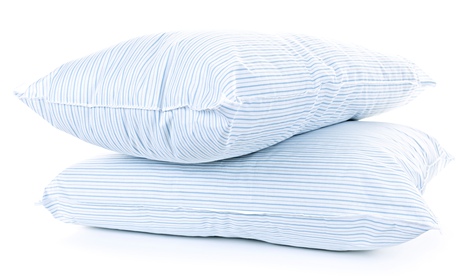From the desk of Christopher B. Renne, D.C. August 22, 2014
Hello, friends. I am writing this from my cozy office,
currently enjoying 75 degree indoor temperatures thanks to the miracle of Air
Conditioning. A few minutes ago, I was in my car, sweating my you know what
off. Here in Jacksonville, Florida, the current temperature reads 97 degrees with
a heat index of 106 degrees. Certainly way too hot for most of us to be outside
laboring or playing.
So, before you or anyone you love gets in trouble with this
heat, please take a few minutes to read the following article about the
dangers, signs and symptoms of heat exhaustion and heat stroke And be sure to
stay indoors, if possible, today and get plenty of healthy fluids!
What causes heat exhaustion and heatstroke?
Heat-related
illnesses, such as heat exhaustion and heatstroke, occur when your body can't
keep itself cool. As the air temperature rises, your body stays cool when your
sweat evaporates. On hot, humid days, the evaporation of sweat is slowed by the
increased moisture in the air. When sweating isn't enough to cool your body,
your body temperature rises, and you may become ill.
What is heat exhaustion?
Heat exhaustion
happens when your body gets too hot. It can be caused by physical exercise or
hot weather. You may experience:
- Heavy sweating
- Feeling weak and/or confused
- Dizziness
- Nausea
- Headache
- Fast heartbeat
- Dark-colored urine, which
indicates dehydration
What should I do if I think I have heat
exhaustion?
If you think you have
heat exhaustion, get out of the heat quickly. Rest in a building that has
air-conditioning. If you can't get inside, find a cool, shady place. Drink
plenty of water or other fluids. Do NOT drink alcohol or caffeinated drinks
(such as soda). These can make heat exhaustion worse. Take a cool shower or
bath, or apply cool water to your skin. Take off any tight or unnecessary
clothing.
If you do not feel
better within 30 minutes, you should contact your doctor. If heat exhaustion is
not treated, it can progress to heatstroke.
What is heatstroke?
Heatstroke is when the
internal temperature of the body reaches 104°F. It can happen when your body
gets too hot during strenuous exercise or when exposed to very hot
temperatures, or it can happen after heat exhaustion isn't properly treated.
Heatstroke is much more serious than heat exhaustion. Heatstroke can cause
damage to your organs and brain. In extreme cases, it can kill you.
Symptoms of heatstroke
- High fever (104°F or higher)
- Severe headache
- Dizziness and feeling
light-headed
- A flushed or red appearance to
the skin
- Lack of sweating
- Muscle weakness or cramps
- Nausea
- Vomiting
- Fast heartbeat
- Fast breathing
- Feeling confused, anxious or
disoriented
- Seizures
What should I do if I think someone has
heatstroke?
If you think someone
might have heatstroke, call emergency medical personnel immediately. While you
are waiting for medical assistance, take the person into an air-conditioned
building or a cool, shady place. Remove the person's unnecessary clothing to help
cool him or her down. Try to fan air over the person while wetting the skin
with water. You can also apply ice packs to the person's armpits, groin, neck
and back. These areas contain a lot of blood vessels close the surface of the
skin. Cooling them with ice packs can help the person cool down.
Get medical help right away if you have these
warning signs:
- Skin that feels hot and dry,
but not sweaty
- Confusion or loss of
consciousness
- Frequent vomiting
- Shortness of breath or trouble breathing
Do medicines affect heatstroke?
The following are some
medicines that can put you in danger of heatstroke because they affect the way
your body reacts to heat:
- Allergy medicines
(antihistamines)
- Some blood pressure and heart
medicines (beta-blockers and vasoconstrictors)
- Diet pills and illegal drugs
such as cocaine (amphetamines)
- Laxatives
- Some medicines that treat
mental health conditions (antidepressants and antipsychotics)
- Seizure medicines (anticonvulsants)
- Water pills (diuretics)
Tell your doctor what
medicines you are taking. He or she can tell you if your medicine puts you in
danger of heatstroke.
What does the "heat index" mean?
The heat index tells
you how hot it feels outside in the shade. It is not the same
as the outside temperature. The heat index is a measurement of how hot it feels
when relative humidity is combined with the effects of the air temperature.
When you are standing in full sunshine, the heat index value is even higher. A heat
index of 90°F or higher is dangerous.
How can I prevent heat illness?
When the heat index is
high, stay indoors in air-conditioned areas when possible. If you must go
outside, take the following precautions:
- Wear lightweight,
light-colored, loose-fitting clothing.
- Protect yourself from the sun
by wearing a hat or using an umbrella.
- Use sunscreen with a sun
protection factor (SPF) of 15 or more.
- Drink plenty of water before
starting an outdoor activity. Drink extra water all day. Keep in mind that
heat-related illnesses are not only caused by high temperatures and a loss
of fluids, but also a lack of salt in the body. Some sports drinks can
help replenish the salt in your body lost through sweating.
- Drink fewer beverages that
contain caffeine (such as tea, coffee and soda) or alcohol.
- Schedule vigorous outdoor
activities for cooler times of the day -- before 10:00 a.m. and after 6:00
p.m.
- During an outdoor activity,
take frequent breaks. Drink water or other fluids every 15 to 20 minutes,
even if you don't feel thirsty. If you have clear, pale urine, you are
probably drinking enough fluids. Dark-colored urine is an indication that
you're dehydrated.
- If you have a chronic medical
problem, ask your doctor about how to deal with the heat, about drinking
extra fluids and about your medicines.
What should I do after having heat exhaustion
or heatstroke?
Having heat exhaustion
or heatstroke makes you more sensitive to hot conditions for about a week
afterwards. Be especially careful not to exercise too hard, and avoid hot
weather. Your doctor can tell you when it is safe to return to your normal
activities.
Source
Management
of Heatstroke and Heat Exhaustion by JL Glazer, M.D. (American
Family Physician June 01, 2005,http://www.aafp.org/afp/20050601/2133.html)
If you made it this far, thank you. Hopefully you learned
something that may help keep you safe during these exceptionally hot summer
days.
Please share this with your friends and family.
As always, be well!
Christopher B. Renne, D.C.

